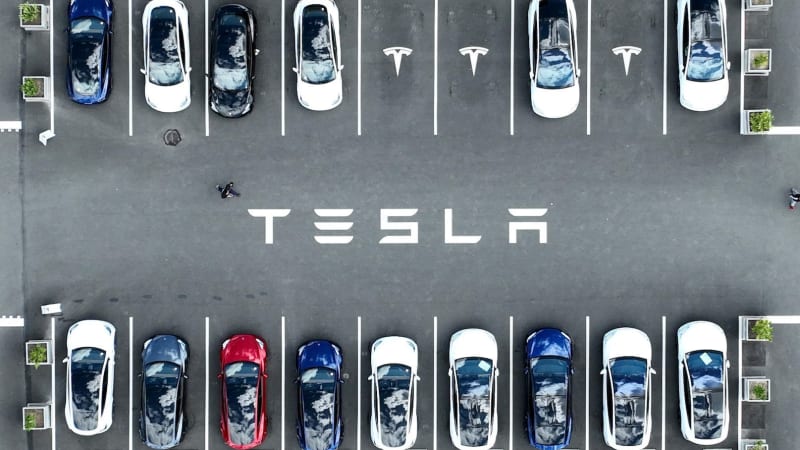Anything but Tesla: U.S. shoppers want more EV options

Parked TeslasJustin Sullivan/Getty Images
EV shoppers want more choices than Tesla.
Latest EV survey results could spell trouble for Tesla growth.
This is the latest sign that the EV slowdown is catching up to Elon Musk.
Electric vehicle shoppers are getting sick of Tesla.
Well over half of the EV shoppers surveyed by UBS in an annual study said they would prefer to buy an electric car from a legacy carmaker over a new manufacturer like Tesla.
On top of that, the bank found that the likelihood a U.S. shopper would buy an EV actually increased with brands other than Tesla.
These results and other signs of stagnation overall in the EV market give UBS reason to believe that Tesla’s near-to-mid-term growth plans are in danger.
UBS has a lower-than-average delivery forecast for Elon Musk’s automaker, predicting sales of 1.8 million this year and about 2 million in 2025. That’s compared to the current consensus among analysts of deliveries just below 2 million this year and about 2.4 million in 2025.
Despite EV shoppers’ clear desire for more options, Tesla remains the top brand for consideration and actually saw an increase in preference among American shoppers, the survey said.
UBS analyst Joseph Spak attributes this growth to recent floundering EV efforts from legacy brands in the U.S., given that BYD managed to surpass Tesla in preference among Chinese respondents.
The latest sign of trouble for Tesla
It appears that a slowdown in EV demand that has dogged Musk’s opponents since last year is finally catching up to Tesla.
The electric vehicle-maker last week reported its lowest quarterly results since 2022 and the company’s first year-over-year quarterly decline since 2020.
So far, an aggressive price-slashing campaign made possible by Tesla’s hefty profit margins had been enough for Telsa to keep up with a changing demographic of EV shoppers, who are becoming increasingly frugal and practical in their purchases.
If EV demand continues to soften, however, simply lowering prices may not be enough. This next wave of EV shoppers is also placing more importance on running costs and shopping their electric cars against hybrids and gas-powered cars.
A growing interest in hybrid vehicles, which Tesla doesn’t sell, may pose another threat.
A recent study from Boston Consulting Group forecasts that the growing hybrid interest is likely to peak among mass-market and premium sedans, coupes, and crossovers — Tesla’s bread and butter.



